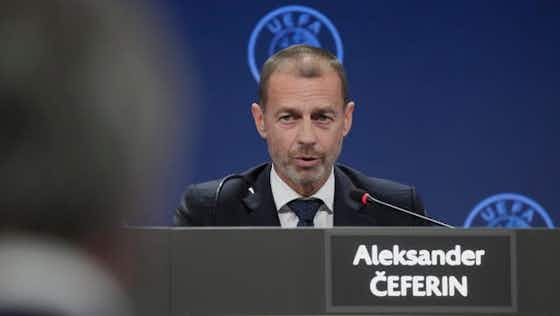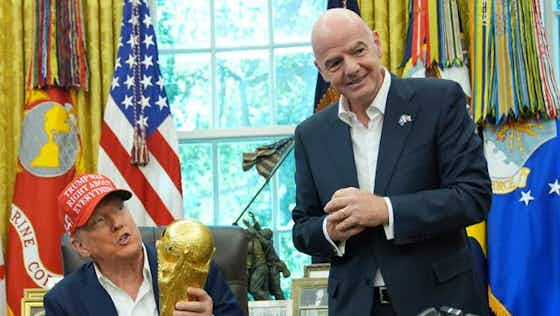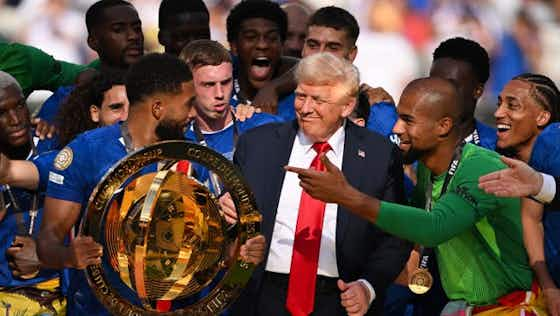Uefa must not betray its principles by approving games abroad
When Uefa ’s Executive Committee meet in Tirana on Thursday, there is likely to be an agenda item under “Miscellaneous” that will have far greater consequences than such innocuous placing suggests.
Then again, that’s exactly how football has been transformed over four decades: new rules agreed in quiet rooms, only for everyone else to realise the true significance when it’s too late. The effects of this item are likely to be irrevocable.
Sources say the ExCo will be asked to approve requests for LaLiga to stage a fixture between Villarreal and Barcelona in Miami as soon as December, and a Serie A game between Milan and Como in Perth next February.
Proposals will also have to go through the relevant confederations and Fifa , but approval would mean the first time a domestic league match is held outside its own jurisdiction. A core principle of football would be gone, its fabric ripped and geography altered.
It is another hinge moment in European football history, in what is already a tumultuous time.
While it is being stressed that such proposals are only for one-off cases rather than blanket new rules, the problem is precedent. No further legal enforcement is possible once precedents are set. And precedent is all that some of the game’s biggest disrupters – from Saudi Arabia to huge capitalist funds – are looking for.

open image in gallery
Barcelona could be set to play a league fixture in Miami (REUTERS)
A “deeply disappointed” Glenn Micallef, European Union sport commissioner, on Wednesday described this as “the first big stress test for governance since the Super League”. In other words, exactly the sort of move football was supposed to be protected against.
“Moving competitions abroad isn’t innovation, it’s betrayal,” Micallef wrote.
It’s that and worse. It’s willing self-cannibalisation.
Approval would see Uefa go against the very reason for its existence, which is to safeguard “a thriving game across Europe”. Every member of the ExCo would meanwhile have to live with a decision that will eventually have profound negative impact on their country’s football.
If that sounds exaggerated, consider the last 40 years. The game has inexplicably adopted a model where there is worsening concentration of wealth in fewer clubs. Just 30 years ago, Ajax were expected to be Champions League winners. Now, a Dutch club in the semi-finals is considered a miracle.
This will actively worsen that process. In the most immediate terms, it will only lead to more interest and money in the biggest clubs, at the expense of the new hosts and their own domestic cultures. Less people will go to local games if they’re dazzled by big glamour. Four decades of TV audiences prove this.

open image in gallery
Aleksander Ceferin and Uefa have a big decision about games abroad to make this week (AP)
But that isn’t even the half of it.
The starting gun will have been fired in a race around the world. LaLiga may argue such “innovation” is essential to compete with the Premier League , but what do they think will happen? The Premier League will eventually be obliged to muscle in, ensuring a supposed “solution” again deepens a problem.
It would be football’s recent history in a nutshell.
Except, it might also lead to a very different future. The next step won’t be leagues abroad, but future versions of the Champions League and more international competitions, putting immense stress on the domestic game. These are all of the plans the game’s many disrupters have in store. Some actively want leagues to be no more than three months a year.
Many meanwhile point to the NFL’s international fixtures, but that’s a one-country competition. It isn’t an intricate global ecosystem, which is precisely what football’s authorities are supposed to protect.
That is why this is such a hinge moment.
Once a core principle is smashed, everything is up for grabs. And the biggest beneficiaries of such disruption are disrupters. In football, those disrupters also happen to be the greatest powers on the planet: capitalist funds, sovereign wealth funds, as well as Fifa, who are enjoying a burgeoning relationship with the world’s most influential leaders.

open image in gallery
Fifa are enjoying a burgeoning relationship with many of the world’s most influential leaders, as shown by Donald Trump’s presence around the recent Club World Cup (AP)
It is astonishing Uefa is even considering it. Some ExCo members do plan to make their opposition heard.
Uefa president Aleksander Ceferin , for his part, last week told Politico he doesn’t think “it’s a good thing”. In that same interview, however, he added that “legally we don’t have much space here”. Other senior figures similarly insist there might be a legal obligation to provisionally approve the proposals.
Numerous lawyers have described this to The Independent as “hogwash”.
The argument comes from LaLiga’s 2018 attempt to take a Girona-Barcelona match to Miami , through the promotion company Relevent. That was blocked by Fifa, leading to a lawsuit by Relevent.

open image in gallery
The Club World Cup largely proved a success for Fifa (Getty)
As Fifa in the meantime deepened their own plans in the US through the Club World Cup, that lawsuit was eventually settled in April 2025. Relevent agreed to drop their case, which many felt cleared the way for these proposals.
That still isn’t legal precedent, though. However, Thursday’s decision could grant exactly that.
Even before that case was settled, however, in February 2025, Uefa themselves agreed for Relevent to be their new worldwide commercial partner for 2027-33. This was already seen as a precursor to staging Champions League matches in the US . Ceferin dismissed this in his customary abrasive style but he himself had previously spoken about the possibility .
A question could be asked as to why Uefa even partnered with an entity that were legally challenging its own principles: playing home games in your own jurisdiction. Uefa so strenuously argued this in 1999 that the European Commission ruled they were absolutely right to block Belgian club Excelsior Mouscron from playing a Uefa Cup home leg in Lille . More legal precedent...

open image in gallery
In 1999, Belgian side Excelsior Mouscron were blocked from playing a UEfa Cup home game in Lille (Getty Images)
Does the Relevent partnership consequently represent a conflict of interest for Uefa? The Independent has put that to the governing body.
The Independent has also contacted various member associations about this, and whether they’d raised it at Uefa level, including the Football Association.
Some pleaded ignorance, given the numerous other topics in football right now, while no one wanted to publicly comment. The associations generally can’t mobilise because of the political structure, and some are more concerned with “potentially losing future under-17 tournaments if they speak out”.
That is how you sleepwalk into a new era.
Pleading ignorance is in itself striking, since we are talking about a major decision to be taken by a confederation the member associations themselves own. Uefa only exists to serve them, and they are supposed to represent leagues and fans at that level.
It is just as notable that fan groups like Football Supporters Europe have been totally sidelined in this, and forced to release a statement expressing opposition. So far, there’s little else.

open image in gallery
Uefa Executive Committee meeting this week could be vital to the future direction of football (AFP via Getty Images)
Should the proposal pass, and Fifa then offer a final say at its Council on 2 October, it is expected that discussions would start to limit such fixtures. For example, clubs may only be allowed play two a season.
Multiple stakeholders nevertheless view that as irrelevant. Once precedent is set, limits can be legally challenged. And those challenges will come with force, from everywhere.
The absolute key point is that this is a rare moment when you can see what’s happening, and something tangible can be done. The ExCo can stop this.
Otherwise, a new era will begin. That looks like something much too far reaching to be put in “any other business”.